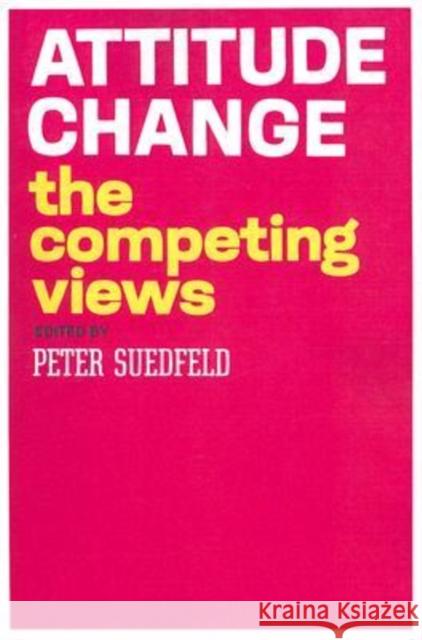Attitude Change : The Competing Views » książka
Attitude Change : The Competing Views
ISBN-13: 9780202361727 / Angielski / Miękka / 2007 / 266 str.
Attitude Change : The Competing Views
ISBN-13: 9780202361727 / Angielski / Miękka / 2007 / 266 str.
(netto: 237,36 VAT: 5%)
Najniższa cena z 30 dni: 226,63
ok. 16-18 dni roboczych.
Darmowa dostawa!
What are attitudes and how are they modified? The many opposing theories to answer this question reflects not only the complexity but also the importance of the field. A central concern of social psychology, attitude change is also relevant to the study of human behavior in general, and a matter of major significance to the world outside the laboratory. Valid and useful theories of attitude change are thus of far-reaching consequence. At the same time, the richness and flexibility of attitude structures and the numerous methodological problems involved in studying them make the development of a definitive theory difficult, if not impossible. For these reasons many explanations have been offered but none have been greatly accepted.The essays included here give voice to a broad sampling of these competing viewpoints. For years attention has been directed mostly to the individual's need to maintain harmony within him, and several of the authors focus on this concept. Cognitive dissonance theory is evaluated in particular detail. Ideas derived from other areas of psychology and attitude change theories based on learning, perception, and cognitive motivation are also well represented in this volume.In his introduction, Suedfeld evaluates these major approaches as well as several less well-known alternatives. In weighing the strengths and weaknesses of each system he considers the limits of the applications of the various theories and the problems the theorists face. This book will be welcomed in a variety of undergraduate and graduate courses, and by scholars and educated laymen seeking information on the current state of knowledge in this field.











